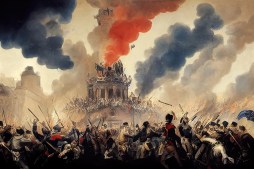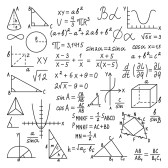Uncovering the Hidden Benefits of Studying History: Why it Matters

While many view history as merely a collection of past events and dates, it is so much more than just memorizing facts. The study of history unlocks a treasure trove of benefits that often go unnoticed. In this article, we will delve into the remarkable advantages of exploring history and uncover why its relevance continues to resonate in our modern world.
Enhancing Critical Thinking Skills
Studying history helps to develop critical thinking skills that are essential for success in various aspects of life. By analyzing historical events and their causes, students learn how to evaluate different perspectives, interpret evidence, and make informed judgments. This ability to think critically allows individuals to navigate complex situations and solve problems effectively.
Moreover, studying history encourages students to look beyond the surface-level information. It teaches them to question assumptions, seek out multiple sources of information, and examine different interpretations of events. These skills enable individuals to understand nuances, detect biases, and form well-rounded opinions based on evidence—a crucial skillset in today’s age of misinformation.
Cultivating Cultural Awareness
One of the significant benefits of studying history is its role in cultivating cultural awareness. History provides insights into diverse societies and civilizations across time periods. It allows individuals to understand how different cultures have shaped our present reality.
Through the study of history, individuals gain an appreciation for cultural diversity by exploring various traditions, customs, belief systems, art forms, and societal structures from around the world. This understanding fosters empathy and tolerance towards people with different backgrounds.
Additionally, studying history also sheds light on historical injustices such as colonization or human rights violations. By learning about these dark chapters in human history, individuals can work towards creating a more inclusive society by promoting equality and justice for all.
Developing Effective Communication Skills
Effective communication is a vital skill in almost every profession or personal interaction. Studying history provides ample opportunities for students to develop their communication skills. By engaging with primary and secondary sources, students learn how to extract relevant information, organize their thoughts, and present their findings in a structured manner.
Furthermore, the study of history often involves research projects, debates, and discussions. These activities require students to articulate their ideas clearly and persuasively while considering different perspectives. Such experiences enhance oral and written communication skills—essential qualities for success in professional environments.
Additionally, studying history also encourages individuals to become active listeners. Engaging with diverse historical narratives allows individuals to understand different viewpoints and engage in meaningful dialogue with others. This ability to listen attentively and empathetically is crucial for fostering healthy relationships both personally and professionally.
Gaining a Sense of Identity and Perspective
Studying history helps individuals develop a sense of identity by connecting them to their roots. By exploring the achievements, struggles, triumphs, or failures of previous generations, individuals gain insight into their cultural heritage or ancestral lineage.
Understanding one’s historical background provides a context for personal experiences and values. It allows individuals to appreciate the progress made over time while acknowledging the challenges faced by previous generations. This sense of identity fosters a deeper understanding of oneself and enables individuals to navigate life’s choices more effectively.
Moreover, studying history also broadens one’s perspective on current issues by placing them within a historical context. By analyzing past events and patterns, individuals can better comprehend the complexities of contemporary problems such as social inequality or political conflicts. This broader perspective helps in making informed decisions that contribute positively to society.
In conclusion, studying history offers numerous hidden benefits beyond simply memorizing dates or events. It enhances critical thinking skills, cultivates cultural awareness, develops effective communication skills, and provides individuals with a sense of identity and perspective. In today’s rapidly changing world, these benefits make studying history more important than ever before—enabling us to learn from the past while shaping a better future.
This text was generated using a large language model, and select text has been reviewed and moderated for purposes such as readability.






